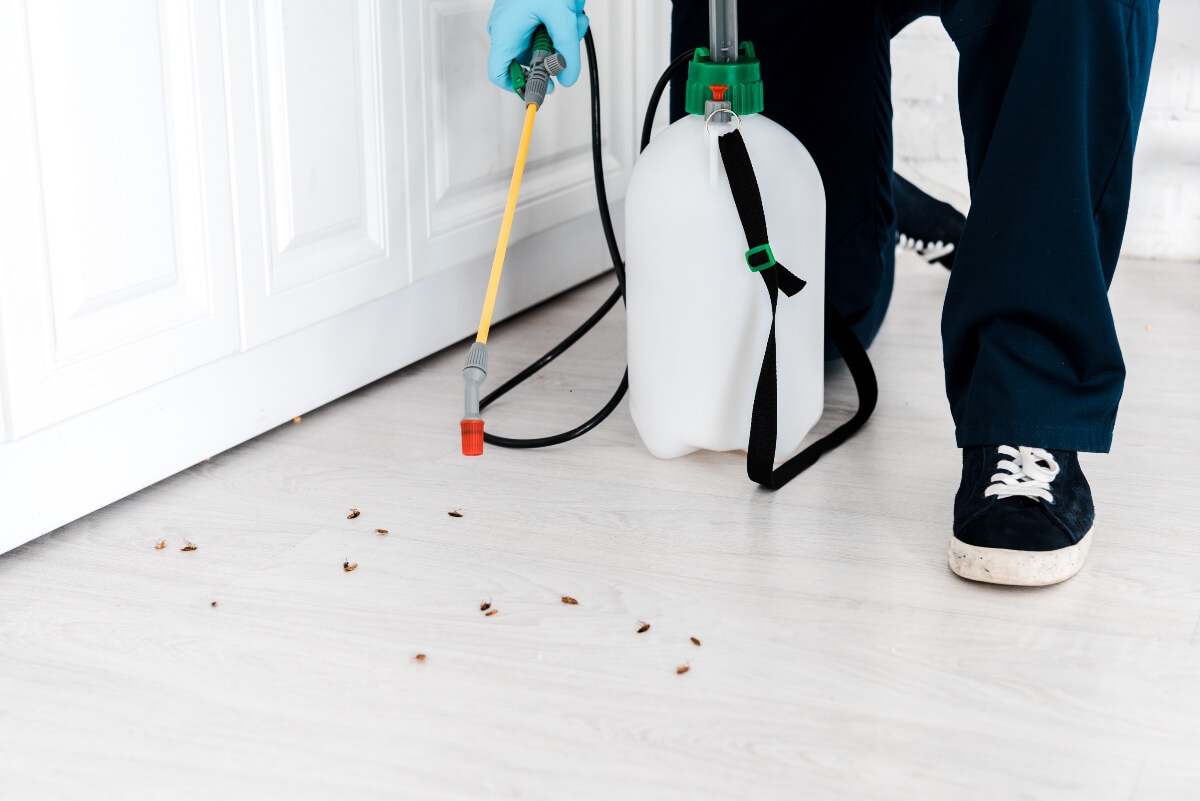
Pest infestations are a significant concern for landlords and tenants alike. Whether you find ants in the kitchen or rodents in the attic, pests can turn a comfortable living space into a nightmare. This raises an important question: Is the landlord responsible for pest control? Keep reading to delve into the responsibilities of landlords and tenants regarding pest control in the context of California law.
Understanding Landlord Responsibility for Pest Control
In rental properties, maintaining a habitable environment is a fundamental responsibility for landlords. This includes keeping the property free from infestations that can harm the tenants’ health or safety. However, who is responsible for pest control when renting can depend on several factors, including the nature of the infestation and local regulations.
California law enforces an “implied warranty of habitability,” meaning landlords must ensure their properties are livable, including taking care of any pest problems. If a property becomes infested, it could be deemed uninhabitable, and landlords must take immediate action to rectify the situation.
When Are Landlords Responsible for Exterminator Costs?
California civil codes specifically mention how the obligation for pest control is handled between the landlord and tenant. Understanding these regulations is crucial for both landlords and tenants. Under California pest control laws, landlords must ensure their rental properties are free from pests. The California Civil Code 1941.1 states that a property must be kept in a condition that is safe, sanitary, and fit for human habitation. This includes taking action against any pest infestations. Here are a few examples of when landlords would be responsible for pest control:
- Pre-Existing Conditions: If the property has pests before the tenant moves in, the landlord must eliminate them.
- Structural Issues: Pests that enter through crafts in the foundation, gaps in windows, or other structural problems are the landlord’s responsibility.
- Environmental Factors: Properties in areas prone to certain pests (like termites in humid regions) require proactive pest management by the landlord.
In cases where landlords are responsible for exterminators, hiring professional pest control services is recommended to ensure the property remains habitable. This is particularly true when the infestation is beyond the tenant’s control.
When Is the Tenant Responsible for Pest Control?
While landlords have significant obligations, tenants also bear some responsibility for keeping their living spaces clean and free of pests. The tenant is responsible for pest control, but only in cases where their actions have caused the infestation.
For example, if tenants fail to keep their living area clean—such as leaving food out or not taking out the trash—they could attract pests, making them responsible for extermination costs. Also, if tenants bring pests into the property (like bedbugs from infested material), they may be held financially accountable for pest control.
How to Prevent Infestations as a Landlord
One of the most effective strategies is to conduct regular inspections of the property, paying close attention to vulnerable areas like basements and attics where pests are more likely to invade. These inspections allow landlords to detect any signs of pests early on, enabling prompt action before the problem escalates. By hiring a professional pest control company, your property will be protected by routine expert inspections.
In addition to regular inspection, it’s essential to seal any potential entry points that pests might use to infiltrate the property. Cracks, gaps, and other small openings around doors, windows, and foundations should be carefully sealed to block access. Proper maintenance of the landscaping surrounding the property is also essential; overgrown plants and shrubs can create inviting habits for pests. Keeping the landscaping well-trimmed and free of debris reduces the likelihood of pests finding their way indoors.
Regardless of who is responsible for pest control while renting, preventing these nuisances from entering the property is essential for maintaining a healthy living environment and benefits both landlords and occupants. It is wise that landlords collaborate with a licensed pest control service to establish a regular treatment schedule that addresses potential pest issues proactively. This partnership ensures that the property is protected year-round and that any emerging problems are dealt with swiftly.
What Should Tenants Do If They Discover a Pest Infestation?
If you’re a tenant dealing with a pest infestation, it’s important to take the following steps:
- Notify the Landlord Immediately: Report the issue as soon as you notice it. Delaying can worsen the problem.
- Document the Infestation: Take photos or videos as evidence and keep records of all communication with your landlord.
- Follow Lease Terms: Review your lease to understand responsibilities regarding pest control.
In most situations, landlords are responsible for pest control, especially if the infestation is due to factors beyond the tenant’s control. However, tenants must also do their part by maintaining cleanliness and reporting issues promptly.
Protect Your Rental with Preventive Pest Control
By understanding and adhering to California landlord pest control laws, landlords and tenants can work together to ensure a pest-free living environment. With proactive measures and clear communication, pest problems can be minimized, ensuring a healthy and safe space for everyone involved.
Ready to keep your property pest-free and ensure a safe, comfortable living environment for your rental property? Preventive Pest Control SoCal is here to help. Proudly serving Orange County and the Inland Empire, we specialize in comprehensive termite inspection and control, as well as effective solutions for ants, spiders, rodents, mosquitoes, cockroaches, gophers, and wasps. With our expert team and customized pest management plans, you can rest easy knowing that your property is protected from even the most stubborn pests. Contact us today to schedule an inspection and take the first step toward a pest-free property!
